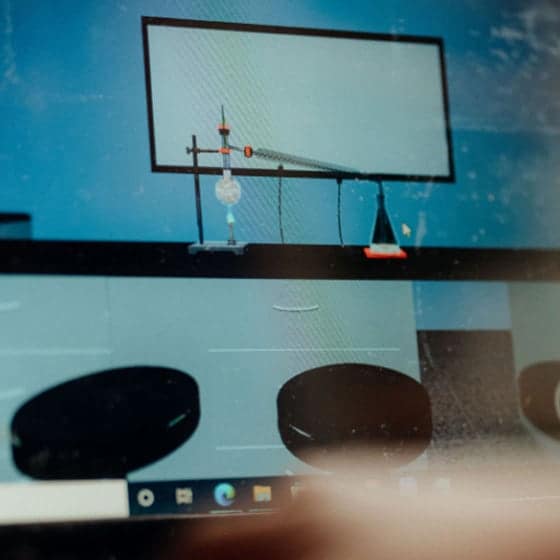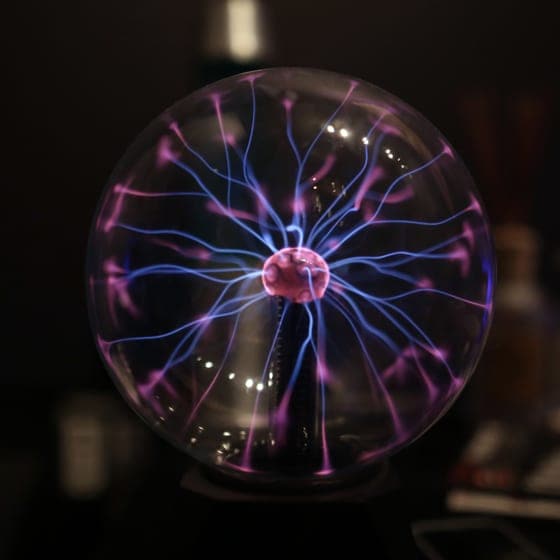StanLab: a 3D virtual laboratory at children’s fingertips
Short subtitle here. Should not exceed more than two lines.
Job Oyebisi’s dream is that every student in Nigeria has access to quality STEM education. His innovation StanLab, is helping to make this a reality, and saw him recognized as a Top Innovator in Deloitte’s WorldClass Education Challenge on UpLink.

When Job Oyebisi was 14 years old, a teacher took him on a tour of a chemistry lab that changed his life.
At Job’s school in Lagos, Nigeria, his class had been asking their chemistry teacher if they could start conducting the experiments they’d been reading about in their textbooks. She kept avoiding the question—until one day, she asked the students to follow her down the hall to the chemistry lab.
The lab was supposed to be a room full of beakers and Bunsen burners, pipettes, and periodic tables. It was supposed to be lined with students hunched over lab benches with goggles on their faces—learning not only the lesson of the day, but something more profound: that understanding how things work could give them the power to create and discover. When Job’s class arrived at the lab, however, they didn’t see any of that. The room was empty.
Job’s teacher explained: the government didn’t have the money to buy and maintain expensive lab equipment at every school in the country. In fact, today, more than 10 million students in Nigeria do not have access to traditional labs. As a result, many students learn the sciences without ever touching a vial or mixing a solution.

“A lot of students like me struggled to really understand science at a secondary school level.”
– Job Oyebisi, Founder StanLab
“So, what happened,” Job explains, “was a lot of students like me struggled to really understand science at a secondary school level.” Without practical experience, 80% of Nigerian students fail a key STEM exam certificate.
Not only do these students lose out on STEM opportunities in their own futures, but society loses out on what they could contribute to our collective future: the African continent generates just 1% of global scientific research.
At first, Job didn’t think he could do anything about this problem. But years later, when he was in university, he had an idea.


“That moment,” Job says, “I thought: what if we build a laboratory and then we put it on a computer? We could immediately provide access to quality STEM education to every student who has access to these computers.”
So, Job built a program called StanLab. The software places students in a virtual lab. They can fill a pipette with the click of a mouse or pour a solution with the drag of a cursor. This virtual lab is not only more affordable, but it saves teachers time, as it can be set up in just five minutes.
It allows students to keep iterating without the need to clean up or worry about costs for materials running experiments as many times they want. In other words, they can keep clicking until it clicks!
StanLab has already enabled free access to their Virtual 3D Science Laboratory platform to all students preparing for the West African Senior School Certificate Exam. As one of the Top Innovators from Deloitte’s WorldClass Education Challenge on UpLink, Job is working with Deloitte and has a goal of reaching 1 million students by 2030. Deloitte is helping to enable his vision by providing funding and pro bono services to support the expansion of StanLab to 10 new countries across Africa by 2023.
Scaling education solutions like Job’s is particularly urgent given Africa’s current population boom. The African continent’s youth population is projected to increase faster than any other region’s, growing by hundreds of millions over the next few decades. If these young people get the educational resources they need, they can help fuel Africa’s growth and development—and create opportunity for people across the continent.
This future will be built by people like Mercy, a young woman Job once met at a public secondary school in Lagos. Mercy once harbored a dream of being a nurse. But after science class became all theory and no practice, she decided maybe nursing wasn’t for her after all. Then, Job introduced her class to StanLab. The hands-on learning reinvigorated her love of science, and she decided to pursue higher education and go on to study medicine after all.
As Job puts it, “This is the story that we want not just in the life of Mercy, but in the millions of girls and boys that are like Mercy... We want to steer their interest in STEM education. We want them to believe in themselves that they can be the future scientists, the future doctors, the future engineers...
